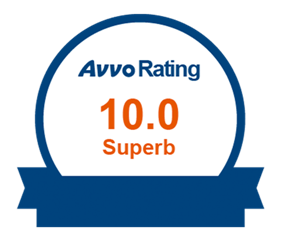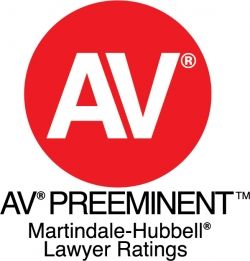Call Now: 719-694-3000
Whistleblower Litigation and Protection
Employment, Insurance, Malpractice, and Estate Attorneys Serving Denver, Colorado Springs, Pueblo, Castle Rock & Nearby Colorado
Whistleblower Litigation and Protection Attorney In Denver & Colorado Springs
If you’ve encountered illegal or unethical activities at work, you may be facing one of the biggest challenges of your career. The decision to speak out or remain quiet can be incredibly difficult. You may fear that if you blow the whistle, you will face retaliation, a hostile work environment, job loss, and an uncertain future.
You have the right to speak out against wrongdoing without fear of retribution. At Leventhal Swan Taylor Temming PC, our team of experienced attorneys is passionate about protecting the rights and well-being of whistleblowers.
As part of our whistleblower litigation team, attorney and founding shareholder, Andrew E. Swan, has set precedent in a variety of fields, including, among others, subject matter jurisdiction and whistleblower protection. Another attorney said that “Andrew is an extraordinarily effective advocate because he knows how to distill complex legal issues to their core.”
To learn more about your rights as a whistleblower and how Leventhal Swan Taylor Temming PC can help, please call us today at 719-694-3000 to discuss your case. We help whistleblowers from across Colorado, including Denver, Colorado Springs, Pueblo, and Castle Rock.
Click the links below for more information about whistleblower cases:
- Examples of whistleblower cases:
- Fraud
- Hostile work environment
- Discrimination
- Wage and hour violations
- Occupational health and safety violations
- Whistleblower retaliation
- Wrongful termination
- The False Claims Act "qui tam" whistleblowers
- Common mistakes in a whistleblower lawsuit
- Why choose Leventhal Swan Taylor Temming PCfor your whistleblower case?
Examples of Whistleblower Cases
Under federal law, you cannot be fired, demoted, or otherwise adversely treated for reporting discrimination, harassment, or other illegal activities at your place of work. In addition, you cannot be retaliated against for refusing to engage in illegal activities at work.
You may be considered a whistleblower when you:
- Report illegal activities by your company or fellow employee
- Report safety violations
- File a wage and hour violation claim
- File a complaint of discrimination or harassment
Examples of whistleblower cases cover a wide range of potential situations, from sexual harassment and discrimination to accounting irregularities and government fraud. Some of the most common examples of whistleblower cases are listed below.
Fraud
Fraud occurs when any criminal or wrongful deception is undertaken to gain personal or financial gain. Fraud can happen in virtually any professional setting, including government, education, and business. The most common examples include:
- Concealing safety concerns or violations
- Billing for services not performed
- Over-billing
- Price fixing
- Performing tasks or procedures without proper licensing
- Providing false certifications by educational institutions or certifying agencies
- Misuse or abuse of company funds
- Submitting false reports
- Committing perjury
Hostile Work Environment
A hostile work environment is often associated with sexual harassment cases, but it can result from a variety of unwelcome actions that make the workplace atmosphere offensive, hostile, or intimidating. Unwelcome conduct that creates a hostile work environment can be made by supervisors, co-workers, contractors, customers, or anyone else you may interact with while on the job.
Behaviors that contribute to a hostile work environment can include:
- Engaging in hostile physical conduct
- Unnecessary touching
- Sabotaging work
- Using crude language
- Discussing sexual activities
- Using indecent gestures
- Commenting on physical attributes
- Using demeaning or inappropriate terms or epithets
- Displaying racially insensitive or sexually suggestive images
- Telling inappropriate jokes concerning disability, sexual orientation, race, or other protected status
Discrimination
Discrimination occurs when an employee is treated less favorably than other workers based on a personal attribute rather than the ability to perform job duties. It is unlawful to discriminate against someone because of their:
- Race, color, social origin, or national origin
- Sex, sexual orientation, or gender identity
- Age
- Physical, intellectual, mental, or psychiatric disability
- Pregnancy or potential pregnancy
- Marital status or relationship status
- Religion
- Political opinion
- Trade union activity
Discrimination may be direct or indirect, intentional or unintentional. It can manifest in the form of jokes and offhand comments that may seem harmless or even go unnoticed by the perpetrator.
Wage and Hour Violations
As an employee, you rely on your paycheck to provide for yourself and your family, and you have the right to be paid fairly for the hours you work. Wage and hour disputes are common employment law issues, and commonly include:
- Failure to pay minimum wage
- Employee misclassification (such as exempt from overtime)
- Failure to pay for vacation time
- Withholding tips
- Unpaid or underpaid wages
- Violations of the Fair Labor Standards Act (FLSA)
- Failure to reimburse work-related expenses
- Failure to allow required meal and rest breaks
Occupational Health and Safety Violations
The health and safety conditions of your workplace are among the most important factors of your job and well-being. Unfortunately, many employees fear discrimination or retaliation in response to reporting a potential or known safety violation.
Federal law governs a variety of safety issues. The Occupational Safety and Health Administration (OSHA) ensures that, as an employee, you have the right to:
- Review statistics relevant to exposure and medical records
- Enjoy workplace safety standards and health programs
- Freedom from discrimination or retaliatory action by employer
- Request an inspection of potential hazards
Whistleblower Retaliation
If you have spoken out against conduct at your workplace that you believe may be unlawful, federal and state laws prohibit your employer from retaliating against you for blowing the whistle. Workplace retaliation can take many forms, including:
- Demotion
- Termination
- Transfer
- Refusal to hire
- Denial of promotion
- Reassignment to undesirable job duties
The list above is only a sample of actions that could qualify as workplace retaliation. Any action taken by your employer that negatively affects your work environment, or current or future employment status, can be considered workplace retaliation.
Wrongful Termination
Colorado is an “at-will” employment state. While this generally means that your employer can terminate you for any reason or no reason, you cannot be terminated for the wrong reason. Federal and state laws protect you from wrongful termination, which can include a number of circumstances, such as:
- Reporting fraudulent accounting practices
- Reporting a violation of the employment laws
- Testifying against your employer in an administrative or court proceeding
- Participating in an internal investigation of a discrimination or harassment complaint
- Reporting sexual harassment
- Filing a claim of discrimination, either on your own behalf or on behalf of another employee
As with federal law, Colorado law prohibits termination based on an employee’s protected status, such as race, religion, national origin, disability, gender, marital status, sexual orientation, or gender orientation.

The False Claims Act “Qui Tam” Whistleblowers
The False Claims Act (FCA) allows whistleblowers to bring lawsuits against individuals and companies that defraud the federal government. These particular types of lawsuits are referred to as “qui tam” actions.
In qui tam cases, whistleblowers are usually awarded between fifteen and thirty percent of the total recovered amount. Percentages in these cases are determined by several factors, including the significance of the whistleblower’s contribution to the case and the involvement of the Justice Department. In some cases, this can result in a multi-million dollar award for the whistleblower.
Qui tam lawsuits are effective tools of the federal government to combat fraud in a variety of situations, including:
- Health care fraud
- Pharmaceutical fraud
- Tax fraud
- Government contractor fraud
- Money laundering and securities fraud
Whistleblowers have become an indispensable component of anti-fraud enforcement in the United States. Every day, honest workers discover they are employed by or interfacing with corrupt companies. The FCA provides the ability to expose fraud that would otherwise never be detected by law enforcement. Simply put, whistleblowers are important.
Common Mistakes in a Whistleblower Lawsuit
Like any legal actions, whistleblower cases are filled with challenges and potential obstacles. Some of the common mistakes you want to avoid in these cases include:
- Choosing an inexperienced attorney: Whistleblower cases are incredibly complex and demand the skills and knowledge of an experienced lawyer. Be sure to check your attorney’s record of success and choose a lawyer you can trust. At Leventhal Swan Taylor Temming PC, our attorneys have built a reputation for exceptional, detail-oriented counsel and successful outcomes.
- Discussing your case with anyone but your attorney: Whistleblower cases are particularly sensitive suits, and should not be discussed with anyone but your trusted legal counsel. This includes mentioning details on social media platforms, because public discussion can harm your case.
- Not acting soon enough: Acting in a timely manner is critical to most legal actions. With qui tam cases in particular, timing can be everything. If your qui tam lawsuit is not the first one filed regarding a specific situation, it will likely be dismissed.
Why Choose Leventhal Swan Taylor Temming PC for Your Whistle Blower Case?
The attorneys at Leventhal Swan Taylor Temming PC have extensive experience representing whistleblowers. We understand what a difficult decision it can be to stand up for what is right at the risk of retaliation from your employer. This is why we take these cases personally, and fight aggressively to protect your rights.
We will confidentially review the details of your case to determine whether any whistleblower laws apply and advise you of your legal rights and appropriate courses of action to consider.
Our attorneys have a distinguished track record, both in and out of the courtroom, of achieving the best possible results for our clients. When you choose Leventhal Swan Taylor Temming PC, you can expect the highest level of skill, tenacity, and integrity.
Call Us Today to Discuss Your Whistleblower Case
To find out more about your rights and the merits of your whistleblower case, please call Leventhal Swan Taylor Temming PC today at 719-694-3000. We proudly serve the Colorado Springs, Pueblo, and Castle Rock areas of Colorado.
Schedule a Case Evaluation
Contact us now!
Homepage FCE Form
We will get back to you as soon as possible.
Please try again later.
By submitting this form, you agree to be contacted by our law firm, either by phone, text or by email.
Disclaimer: Official website of Leventhal Swan Taylor Temming PC The information you obtain on this site is not, and is not intended to be, legal advice. The information provided by Leventhal Swan Taylor Temming PC- Attorneys and Counselors at Law is intended to provide general information regarding employment law and other legal matters including contract disputes, overtime, wage and hour issues, insurance bad faith, probate litigation, trust litigation, legal malpractice, medical malpractice, whistleblower litigation and whistleblower protection, class action lawsuits, and more, for residents near Colorado Springs, Castle Rock, Pueblo, Denver, and other areas of Colorado. This website is not intended for viewing or usage by European Union citizens. We invite you to contact us to request a free, personalized case evaluation and welcome your calls and email. Contacting us does not create an attorney-client relationship. The choice of a lawyer is an important decision and should not be based solely upon advertisements. The outcome of each legal case depends upon many factors and no attorney can guarantee a particular result in any case.
All Rights Reserved | Leventhal Swan Taylor Temming PC | Powered By Convert It Marketing | Privacy Policy
All Rights Reserved | Leventhal Swan Taylor Temming PC | Powered By Convert It Marketing | Privacy Policy



